
Famous Parenting Experts and Their Parenting Styles Theories: Humanism vs. Behaviorism
This large page on famous parenting experts and child developmental psychologists will take you on an exciting parenting styles journey where you get to read about the most important and prominent child experts through history.
Even though most of these child experts give birth to a specific parenting style or child developmental psychology approach, all can be said to have their roots one of two existentially, psychologically and philosophically opposing 'boxes':
- HUMANISM: the 'soft', involved and flexible
internally focused approach
... or
- BEHAVIORISM: the more 'strict', detached and inflexible externally focused approach
Therefore What You'll Get on This Parenting Experts Page Is:
- Insights into the basics of Behaviorism and Humanism
- The essence of past and present Behaviorist
parenting styles such as detached parenting, operant
conditioning and authoritarian parenting.
- Parenting experts
related to these parenting styles, either as founders, refiners,
supporters or 'coiners', are
John B. Watson,
B. F.
Skinner, James Dobson and
Amy Chua.
- Parenting experts
related to these parenting styles, either as founders, refiners,
supporters or 'coiners', are
John B. Watson,
B. F.
Skinner, James Dobson and
Amy Chua.
- The essence of past and present Humanistic parenting
styles such as constructivism, unconditional positive
regard, positive psychology, attachment parenting.
- Parenting experts related to these parenting styles, either as founders, refiners, supporters or 'coiners', are Jean Piaget, Abraham Maslow, Sigmund Freud, Erik Erikson, Alfie Kohn, Carl Rogers, Martin Seligman, Dr. Benjamin Spock, John Bowlby, Mary Ainsworth, Dr. William Sears (and Diana Baumrind).
So if you're eager to go directly to a certain topic or one of the
parenting experts, just
click on one of the above links - if you're here for the full story
of how each of the parenting experts belong to either the humanistic
or behaviorist box,
just lean back and read on :-)
Humanism vs. Behaviorism: Two Radically Opposed Roots of all Parenting Styles
Basically, all parenting styles can be divided into two broad
categories: Humanism or Behaviorism.
Yes, each one of the
parenting experts brings their own unique perspective and ideas on
child developmental psychology, and each approach varies somewhat,
but despite their differences, all philosophies on the
psychology of
children have their most basic roots in one of
these two fields of beliefs.
Some people may think that such
a division is rather simplistic and many child development
psychologists and parenting experts argue for the inclusion of other categories such as
Cognitive, Social Cognitive, or Intellectual, but in looking at all
theories of parenting, it is very easy to see that each one is based
on one of these two approaches.
Both Behaviorism and
Humanism acknowledge that experience shapes behavior, however,
Behaviorism focuses on physical, external behavior while Humanism
considers the whole person.
So in short:
- Behaviorism begins with a
pre-set list of non-negotiable rules and works to make and
mold the child so that he or she will fit the parents'
preconceived ideas of who they think he or she should be. The
goal of this 'shaping' is, among other things, that the child's behavior earns the
respect of the family, the specific culture, and society as a whole.
- Humanism begins with a long-term goal of
creating a happy, caring and psychologically healthy person. The
rules and methods are secondary and will be worked out
along the way, staying flexible but never losing sight of the big
picture.
The Basics on Behaviorism and Humanism
Behaviorism |
Humanism |
|
Goal of Behaviorism: Shaping the child to become a valuable asset for the family and society ... the type of valuable asset is decided in beforehand. |
Goal of Humanism:
Supporting and encouraging the child to reach and naturally
grow into his or her full potential ... what ever it is. |
| The premise
of Behaviorism: the child exists for someone or
something else. |
The premise of Humanism: the child is unique has a right to exist for himself or herself |
| The Means of
Behaviorism: Boiled down to the very core,
Behaviorism is based on the idea that one 'stronger'
person can (and should) control another 'weaker' person
through manipulation - typically through the use of
threats and punishments (rewards is certainly also
manipulation but is not exclusively seen in the 'traditional'
behaviorist parenting styles). |
The Means of Humanism:
Emphasis on supporting autonomy and an authentic character.
A strong belief in the individual supported by the means of
unconditional love, approval and acceptance. The practical
focus is on meeting needs and responding to children as individuals, giving each
one what THEY need in the WAY they need it. |
Thus in Short the Behaviorist Parent Believes that ... |
Thus in Short the Humanist Parent Believes that ... |
| ...
conditioning is the best way to prepare children for the
expectations of adulthood and the "real world"
beyond the safety of the home. Thus children's behavior can
be shaped, and they can be conditioned to act in
certain ways. ... that it is their job to set a child's goals, determine appropriate behavior, decide needed changes, and design the system of rewards and punishments that will give the desired results. ... life is like a staged play: children will follow a written script, act according to the director's instructions, and stay within an arranged environment with all the sets, props, and tools needed for a perfect performance. This is necessary because it is believed that a child is not capable of making responsible decisions on his own and, therefore, must have someone do it for him until he can be trusted to behave in a way that is acceptable to both his parents and society. ... choice, free-will, and happiness is largely overrated |
... parents should be models, examples for their children to follow - teachings through doings rather than sayings.
... learning involves the whole person, and
therefore, parenting should consider every aspect of
child development - physical, social, and
cognitive. ... children should be involved in decision making processes as much as their age/maturity will permit and are allowed to make mistakes. |
Famous Behaviorist Parenting Approaches
The Father of Behaviorism: John B. Watson's Detached Parenting
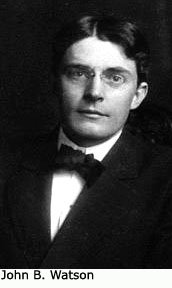 The philosophy of detached parenting as introduced by
John B. Watson who suggested that parenting should be approached
with lots of rules and little affection.
The philosophy of detached parenting as introduced by
John B. Watson who suggested that parenting should be approached
with lots of rules and little affection.
Affection is Dangerous
John B. Watson proposed that if children become too attached they will grow to be dependent and insecure adults. Therefore showing affecting wasn't just seen as irrelevant, it was 'dangerous' even. Too much affection would ruin the 'adult' goals set out for the child.
Parenting Is Just a Job
According to John B. Watson's parenting experts theory, parenting
is simply a 'job' and should be approached as such. There should be
strict schedules, controlled environments, elimination of a child's
free will, and no regard for individuality, personality, emotion,
instinct or desire. Plain and simple!
Remnants of B. F. Skinner's Operant Conditioning Is Still Very Much Alive Today
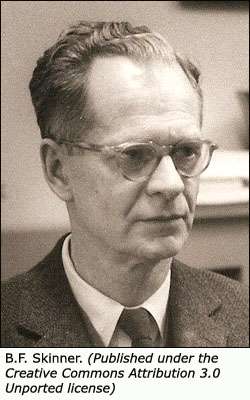 While
B.F.
Skinner worked primarily with rats, his findings and theories have
been the inspiration for many parenting experts and foundation for many parenting theories over the years.
While
B.F.
Skinner worked primarily with rats, his findings and theories have
been the inspiration for many parenting experts and foundation for many parenting theories over the years.
Basically, B. F. Skinner said that all behavior is affected by
consequences and is a result of external sources or stimuli, conditioning.
Like John B. Watson, he believed that thoughts, emotions, desires, and
beliefs could not be used to explain or justify behavior.
Rewards Lead to Automated Behavior Patterns
Children will do what they are supposed to do simply because they will want the reward for doing so (or they will want to avoid punishment).
Continued reward leads to a pattern that eventually develops a habit and then specific behaviors will become automatic.
His Theories Are Still Thriving in the School System Today
Although B. F. Skinner is often considered "old school", his
behavior modification methods are still promoted by parenting
experts today and are very prominent in many educational systems.
Since children have been conditioned to believe that they
exchange rewards for behavior, things such as star charts, report
cards, treats, and extra privileges are often used to encourage
particular actions.
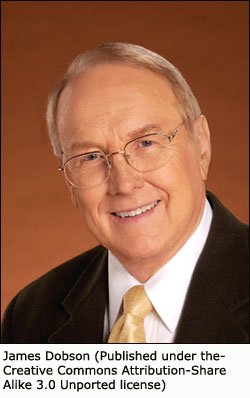 The Modern Expression of Behaviorism,
Authoritarian Parenting, and Their Supporters James Dobson and Amy
Chua
The Modern Expression of Behaviorism,
Authoritarian Parenting, and Their Supporters James Dobson and Amy
Chua
This
term, coined by
developmental psychologist Diana Baumrind, is simply just another way of saying
Behaviorism.
While Humanistic parenting approaches have
definitely dominated the parenting field as of late,
authoritarian
parenting can still be seen in
the work of such parenting experts as James Dobson or Amy Chua.
James
Dobson does insist upon obedience and parental control, but he tones
his rigid approach down a little by saying that children need
unconditional love.
Amy Chua, however, takes the
authoritarian approach to the absolute extreme. Her strict rules,
tough love, and achievement based parenting style leaves no room for
a child's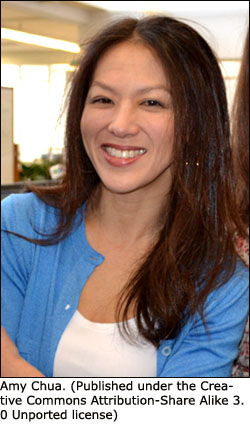 wants or desires.
wants or desires.
In fact, what a child wants
doesn't matter because a parent always knows best. Failure to meet
the standards results in punishment, insults, and loss of privileges.
However, despite the blatant Behaviorism, Amy Chua claims
that this style of parenting in very successful in many countries of
the world and that disdain for her ideas is really confined to the
Western countries.
When Authoritarian Parenting Doesn't Produce the Expected Results
Behaviorism was the ruling parenting
method for decades, until many parenting experts started questioning its
results. Although it promised that the right environment would
produce the "right" children, this didn't always seem to be the
case.
Despite some parents' apparent success, others noticed
that rebellion, resentment, low self-esteem, an inability to solve
problems, and a lack of accountability or responsibility seemed to
be prominent among many children who had been raised according to
strict behavioristic standards.
A recent article by Marvin Marshal
in the July 2012 edition of the Teacher.net Gazette entitled,
Tom Sawyer, B.F. Skinner and Parenting Without Stress states,
- "Behaviorism creates a desire for the reward (the bribe) rather than the task, and never creates commitment."
Parenting approaches rooted in Humanism began to rise up in
response to all the questions and doubts raised by some of the
parenting experts who did not
support the more Behavioristic parenting styles.
Famous Humanistic Parenting Approaches
Constructivism: Going Beyond the Environment by Allowing for Individual Experiences and Senses
This theory states that a person's
understanding and knowledge of the world comes from processing and
organizing personal experiences.
Every time a child
encounters or experiences something new, he must find ways to
incorporate this information into the knowledge and ideas that he
already possesses.
This may mean building on current understanding
or even replacing old ways of thinking with new ones.
Constructivism believes that each person creates their own knowledge
and understanding through exploring, investigating, and experiencing
- or using their five senses.
When psychologists such as
Jean Piaget and Abraham Maslow first introduced this idea it was
embraced by those who thought that Behaviorism was incomplete.
Remember, Watson argued that a child's environment was all that
mattered so behavior was shaped by manipulating the environment in
which a child grew and functioned.
Jean Piaget Brought the Individual Interpretation of the World into Parenting Theories
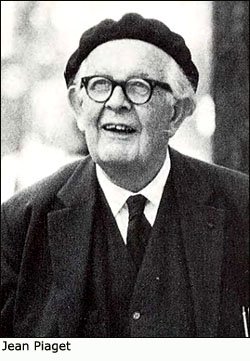 Jean Piaget proposed that
there was a little more to child development than what Behaviorists
claimed.
Jean Piaget proposed that
there was a little more to child development than what Behaviorists
claimed.
Yes, the environment is important. But, even more
important is the way in which a child interacts with this
environment. He believed that human learning is actually "constructed"
by joining one logical structure or thought process with another -
kind of like building blocks.
According to Jean Piaget's
Constructivist Theory, parents must understand the steps a child
goes through on the journey of development so that they can meet the
child's need for exploration and discovery at each level.
The biggest difference between Behaviorism and
Jean Piaget's theory is
the idea that children must be involved in their environment and
create their own understanding of what they experience.
In
other words, even if a parent controls the environment perfectly,
how a child interprets and process this environment (and his
experiences within this environment) will determine development and
personality.
Unlike John B. Watson, who believed children
were a blank slate to be programmed and designed according to a
parent's plan, Jean Piaget suggested that every child already
possesses everything they need to become a healthy adult but must
use their experiences and social interaction to construct these "blocks"
in a useful manner.
- "To understand is to discover, or reconstruct by rediscovery, and such conditions must be complied with if in the future individuals are to be formed who are capable of production and creativity and not simple repetition." - Jean Piaget
Abraham Maslow's Idea of Self-Actualization: Everybody Strives to Fulfill Their Own Potential
Abraham Maslow is famous for his idea of
Self-Actualization, but his theories have a strong constructivist
foundation.
Abraham Maslow believed that in order to
discover their true identity, individuals must move through a
hierarchy of needs where one level builds on the other to lead to
Self-Actualization.
Therefore, as parents, by meeting your
child's needs (or helping him meet his own needs), you are also
helping him "create himself" or achieve his full potential.
Although Maslow began with the teachings of
Sigmund Freud, he
disagreed with the idea that much of an individual's behavior was a
result of what was held in the unconscious (limiting a person's
ability to make "conscious" choices) and felt that Freud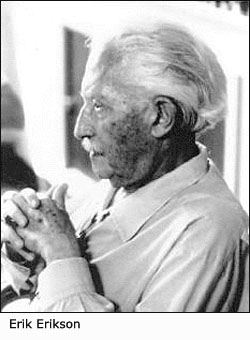 focused far
too much on the negative aspects of humankind.
focused far
too much on the negative aspects of humankind.
Maslow
popularized Humanism by suggesting that parents should concentrate
on promoting the positive rather than always trying to "fix" the
negative.
Erik Erikson Also Supports the 'Interactive' Idea Inherent in Piaget's Theory
Erik Erikson's Psychosocial Theory was also based
on the foundation established by Piaget and gives further strength
to the idea that children move through stages and "build" an
understanding of the world (or develop connection) through
experiences, interaction, and nurture.
Unconditional Love and The Unconditional Positive Regard
This parenting approach
works from the premise that every child has within them all they
need to become who they are meant to be.
While psychologists
such as Freud, Piaget, Maslow, and Erikson pioneered humanism, it
was experts like Carl Rogers and Alfie Kohn who truly paved the way
to a new type of parenting.
Parenting experts with a constructivist
approach believe that
everyone has the same needs and must pass through the same stages of
development in order to become healthy adults - although they do
acknowledge that the journey through these stages will not be the
same for everyone.
Carl Rogers - The Founder of the Unconditional Positive Regard
Carl Rogers' theory takes a less universal
approach. In fact, he endorses individuality - everyone is unique
and should be treated as such.
It is from Rogers' work that
we get the phrase "child-centered parenting".
No, this does
not mean that the child rules the home - as many
authoritarian
parents would have you believe.
It actually suggests that every child has strengths and
abilities that will shape their personality and help them become a
unique, secure, and happy adult.
It is the job of the
parents to provide what Carl Rogers calls the
Unconditional Positive Regard - or acceptance without
judgement - to encourage their child to discover and develop those
things that make him special and to teach him how to use those
strengths and abilities to impact the world in a positive way.
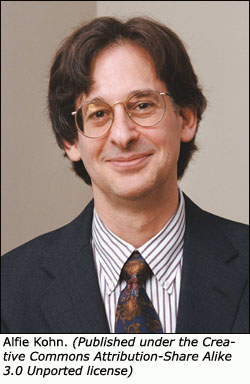 Alfie Kohn - The Transformer of Unconditional Positive Regard
into Unconditional Parenting
Alfie Kohn - The Transformer of Unconditional Positive Regard
into Unconditional Parenting
Alfie Kohn, in his theory of
Unconditional Parenting, disagrees with the Behaviorist method of
rewards and punishments.
He believes that these things make
a child feel like they have "earn" their parent's love and affection
and causes them to grow up thinking that they are not free to
explore their strengths and desires but must behave according to
expectations.
His research has shown that many children
raised in "conditional" environments will often become resentful,
insecure, and discontent because they were unable to fulfill their
unique needs or pursue their individual dreams.
Parenting experts such
as Carl Rogers and Alfie Kohn suggest that childhood experiences
impact personality development and that the best kind of parenting
style is one that focuses on the child as an individual.
Martin Seligman and Positive Psychology: Focus on Strength Rather than Weaknesses
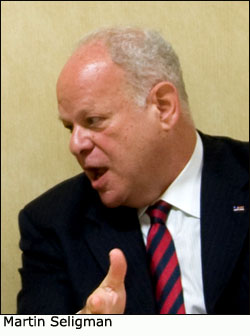 Martin Seligman adds another aspect to this approach. While he
agrees that parenting should be child-centered, he also suggests
that the health and well-being of the parent is vitally important.
Martin Seligman adds another aspect to this approach. While he
agrees that parenting should be child-centered, he also suggests
that the health and well-being of the parent is vitally important.
In other words, as a parent you should put your child first,
but, as a unique individual, you should not neglect yourself.
Your sense of self-worth, security, and fulfillment will impact
your child. His theory of
Positive Psychology supports a "two-way street " - a positive parent will
produce a positive child.
And, like his parenting experts colleagues, Seligman
endorses being goal-centered rather than problem-centered so that
you are focusing on the child as a whole rather than all the little
issues.
So, Unconditional Positive Regard, Unconditional
Parenting, and Positive Psychology and
Positive Parenting - all rooted in Humanism - believe that the most
important part of parenting is to meet your child's needs, help him
find his strengths and passions, and teach him how to use those "virtues"
to be future minded, independent, and "self-actualized".
Attachment Parenting: The Most Popular and Widespread Expression of Humanism Today
Based on Attachment Theory, this parenting approach had gained a lot of attention in recent years. Although it was popularized by Dr. William Sears, its foundations were laid by Dr. Benjamin Spock.
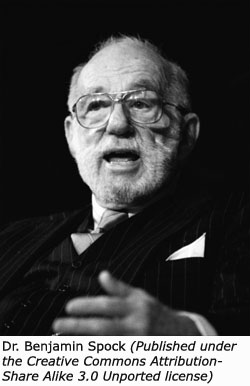 The Powerful and Revolutionary Humanistic Legacy of Dr.
Benjamin Spock
The Powerful and Revolutionary Humanistic Legacy of Dr.
Benjamin Spock
When
Dr.
Benjamin Spock
came on the scene, he went against prevailing behavioristic
parenting experts and revolutionized parenting and changed the way
parents interacted with their children. He argued that external
rewards and punishments produced external results without character.
Children should be treated as humans (thus Humanism) and not
robots. Furthermore, it should not be assumed that every child has
the same needs or would respond in the same way.
His theory
simplified: trust your instincts and intuition, show affection,
follow your gut, and do what you think is best for your child.
By responding to your child you will create a bond that is far
greater than any reward or punishment.
The Scientific Expression and Support of Humanism by John Bowlby and Mary Ainsworth
John Bowlby and Mary Ainsworth supported this idea of responsiveness and attachment through their studies at Tavistock Clinic.
After
observing children who were isolated from their parents or
caregivers (particularly their mothers), John Bowlby and Mary
Ainsworth concluded that children who were deprived of responsive
mothers had difficulty with relationships, even into adulthood.
A loving, sensitive, responsive relationship with parents will
encourage self-esteem, confidence, and independence. From these
observations, Bowlby created Attachment Theory.
 Diana Baumrind: The First Real Parenting Styles Expert
Diana Baumrind: The First Real Parenting Styles Expert
Further studies have proven that responsiveness is very important to
child development and it is this factor that forms the basis for
Diana Baumrind's Parenting styles.
Each style is defined by
its ratio of parental responsiveness to demandingness, with her
suggestion being that parents should try to find an equal balance
between these two factors.
High responsiveness with low demandingness is only a little better that than the opposite of low responsiveness with high demandingness - both, however, she views as detrimental to healthy child development.
The Father of Attachment Parenting: Dr. William Sears
Using Attachment
Theory as a starting point and taking into account the benefits of a
responsive, engaged parent, one of the most famous parenting experts
today
Dr. William Sears developed what
is known today as Attachment Parenting.
This parenting
approach works from the premise that parents should build a
connection with their children, be in-tune with their moods and
needs, and be truly present in their interactions.
Responding to your child in a way that makes him feel safe and
secure, assuring him that he is accepted and loved unconditionally,
and learning how to maintain healthy, open communication should form
the foundation of your parenting techniques.
Since every
child is a unique individual, relationship cannot be reduced to a
set of rules, but parents should respond to their child in a manner
that is best for both parent and child - in a way that focuses on
developing a strong, secure attachment.
Attachment parenting
is based on mutual respect, behavior modelling, unconditional love,
and talking as well as listening.
Children are seen as
valuable human beings and are treated as such.
Your Positive
Parenting Ally,
Birgitte

Want to stay in touch and get the latest news?
Sign up
for my free newsletter
Parent Coaching
- For Inner Peace, Clarity and a Deeper Connection to Your Child
 Being a parent can feel like a double-edged sword. Life with kids may feel like the greatest gift you have ever received, while at the same being hugely challenging, often leaving you confused, stressed and overwhelmed.
Being a parent can feel like a double-edged sword. Life with kids may feel like the greatest gift you have ever received, while at the same being hugely challenging, often leaving you confused, stressed and overwhelmed.
When we feel like this, we've lost touch with ourselves. We can't hear our own inner voice, and it's difficult to know what is 'right' for us and how to act.
I offer in-depth parent coaching to help you regain your balance and get back in touch with yourself. From a place of inner peace and clarity, your will find your own answers which will help you reconnect with your child from a place of unconditional love and acceptance.
Read more about my parent coaching here.
Where Would You Like to Go Next?
Parenting Experts Related to BEHAVIORIST Parenting Styles (Founders, Refiners, Supporters or 'Coiners')
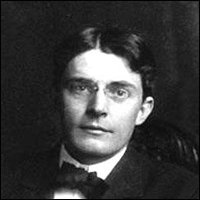 John B Watson Biography, Theories and Books: The Father of Behaviorism. |
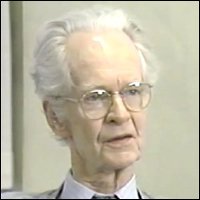 B. F. Skinner Biography, Theories and Books: Father of Radical Behavorism. |
 Amy Chua Biography and Theories: Tiger Mother's 9 Parenting Principles. |
Parenting Experts Related to HUMANISTIC Parenting Styles (Founders, Refiners, Supporters or 'Coiners')
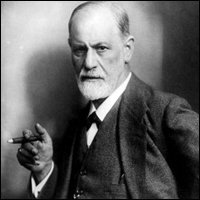 Sigmund Freud the Controversial Pioneer of Psychology: The Famous Psychosexual Stages of Child Development. |
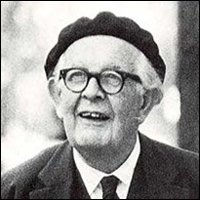 Jean Piaget Biography, Theories and Books: The Earliest Torch Bearer of Humanism. |
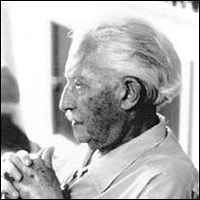 Erik Erikson Biography and Theories: The 8 Developmental Stages, Identity Crisis and Ego Identity. |
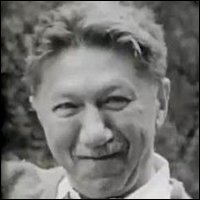 Abraham Maslow Biography: The Father of Humanistic Psychology and Self Actualization Theory. |
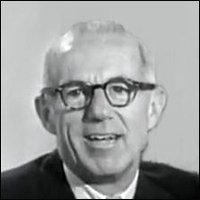 Dr. Benjamin Spock Biography, Theories and Books: The Controversial Forefather of Intuitive Parenting. |
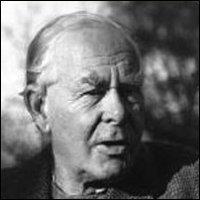 A Biography of John Bowlby: The Father of Attachment Theory. |
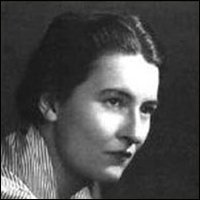 An Intriguing Mary Ainsworth Biography: The Refiner of Attachment Theory. |
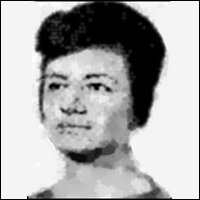 Diana Baumrind Spot-on: Biography, 3 Parenting Styles and Criticism (Spanking). |
 Carl Rogers Biography, Theories and Books: The Founder of Humanistic Psychology. |
 Alfie Kohn Biography, Theories and Books: The Father of Unconditional Parenting. |
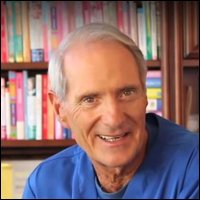 Deep Insights into the Essence of Dr Sears' Attachment Parenting - Along with a Fascinating Historical View on the Slow Rising Consciousness of Attachment Parenting. |
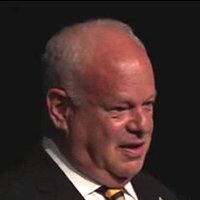 Martin Seligman: The Critic of Traditional Psychology and Father of Positive Psychology. |
Back to the top of this page about Famous Parenting Experts and Their Parenting Styles Theories
Go to the Positive Parenting Ally Homepage







